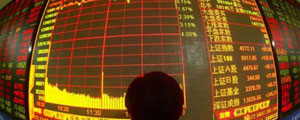
ZIM-TRADE, the country’s trade and promotional body, today starts a two-day export and marketing training programme for Bulawayo companies as part of efforts to find ways of resuscitating the defunct industries in the city.
Gamma Mudarikiri
The training exercise being held at a local hotel is also aimed at developing and improving skills and management capabilities of local company personnel as well as to assist the firms to penetrate export markets and resuscitate export activities after a decade-long economic meltdown.
Organisers said the workshop would go a long way to assist local firms increase their export market share.
The training would also focus on the development of export business plans, market research and export promotion strategies and development, among other key areas. The training comes amid incessant reports that Bulawayo industries are presently in a very critical condition.
Official statistics indicate that at least 84 companies closed shop last year, while a total of 64 companies were reported to be on the verge of collapse.
Due to the harsh economic environment, the local industry is failing to sustain local demand of goods and services which has resulted in the trade deficit widening to $2,37 billion in the six months to June after imports accumulated to $3,92 billion against exports of $1,546 million.
According to the Confederation of Zimbabwe Industries’ manufacturing sector survey, industry reduced its capacity utilisation to 44% from 57% as of June this year and it continues to face a myriad of challenges including subdued foreign direct investment, limited long-term loans and huge energy limitations.
- Chamisa under fire over US$120K donation
- Mavhunga puts DeMbare into Chibuku quarterfinals
- Pension funds bet on Cabora Bassa oilfields
- Councils defy govt fire tender directive
Keep Reading
The country remains a net importer of goods and services which have seen trade deficits continuously growing.
President Robert Mugabe’s new government has promised that it will prioritise Bulawayo’s economic revival, albeit amid threats to punish residents for snubbing him during his controversial re-election.
Critics, however, doubt that Mugabe will achieve the targeted industrial recovery largely due to policy misalignment, particularly the indigenisation law deemed to be scaring away investment.
The country’s indigenisation law requires foreign companies to cede 51% of their shareholding to locals.
Business is temporarily on hold in the post-election era with potential investors adopting a wait-and-see attitude as they wait for Mugabe to unveil his new Cabinet.











